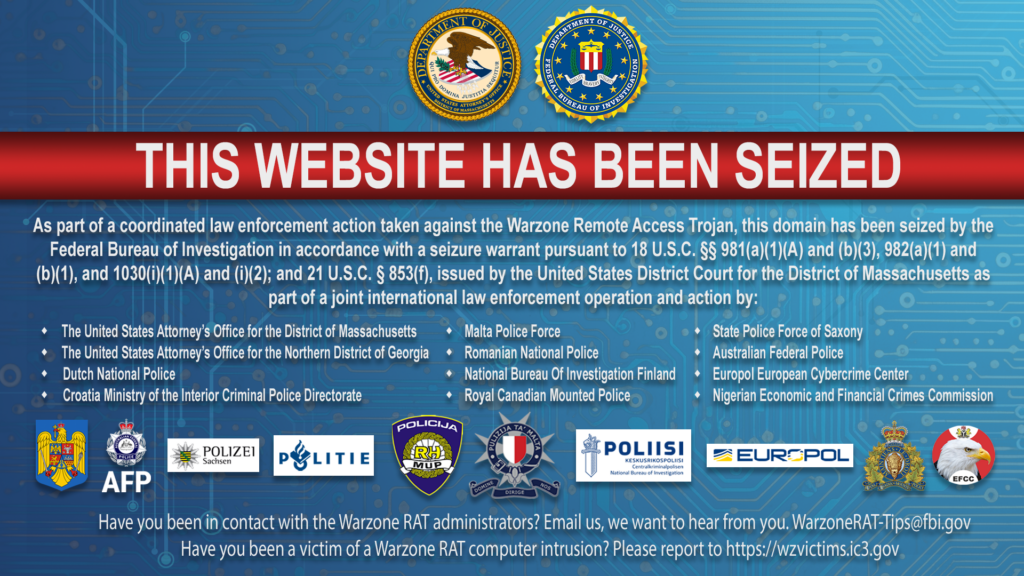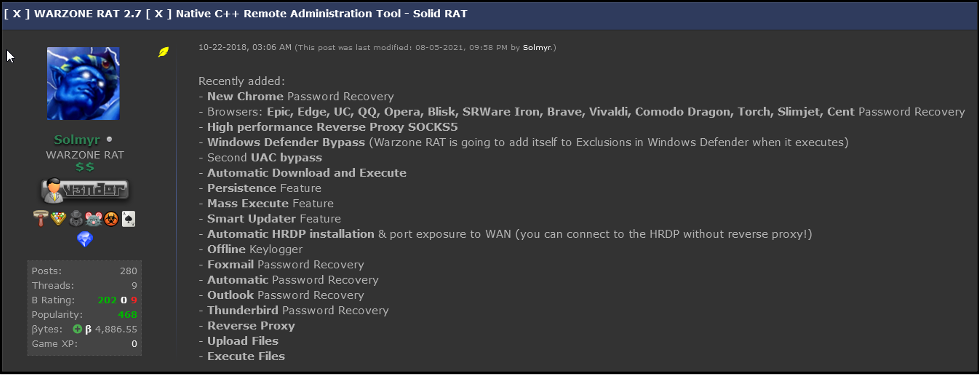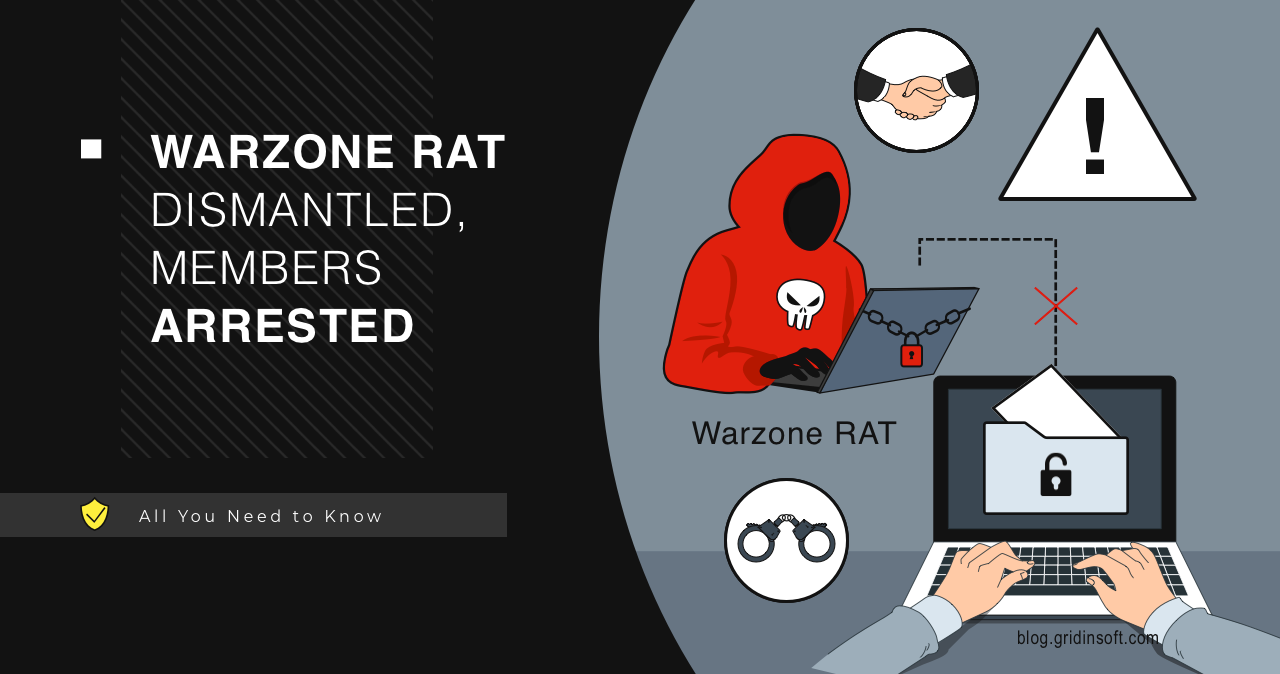In an international law enforcement operation, the U.S. Department of Justice continues its fight against cybercriminals. The operation dismantled a network that sold and supported the Warzone Remote Access Trojan (RAT). Also, this malware allowed cybercriminals to stealthily infiltrate victims’ computers, resulting in data theft and other malicious activities.
Warzone RAT Masters Arrested and Charged
The operation of US Department of Justice resulted in the indictment of two key figures. Daniel Meli, 27, of Zabbar, Malta, and Prince Onyeosiri Odinakachi, 31, of Nigeria. Meli was detained in Malta, facing charges of unauthorized computer damage and selling electronic interception devices. Odinakachi, arrested in Nigeria, is charged with conspiracy to commit computer intrusion offenses.

These arrests are the result of international cooperation in combating this threat. The success of the operation was largely due to the collaborative efforts of various international law enforcement agencies, including the FBI, Europol, the Economic and Financial Crimes Commission of Nigeria, and others. This coordinated approach has helped in the fight against cybercrime, which is increasingly borderless.
Implications and Sentencing
The charges against Meli and Odinakachi carry penalties of up to five years in prison, three years of parole, and a $250,000 fine. These lawsuits send a strong message to cybercriminals and those who facilitate their activities. Certainly, the international community is taking strong action to protect cyber integrity and hold criminals accountable.
James R. Drabick and Carol E. Head, who are Assistant U.S. Attorneys for the District of Massachusetts, obtained seizure warrants for Odinakachi. Drabick is also prosecuting the case against Odinakachi. Meanwhile, Bethany L. Rupert and Michael Herskowitz, who are Assistant U.S. Attorneys for the Northern District of Georgia, are prosecuting Meli.
What is Warzone RAT?
Warzone RAT is a malicious remote access tool that allows unauthorized users to secretly access and control victims’ computers. The malware has facilitated a range of illegal activities, from data theft to webcam surveillance, without the knowledge or consent of victims. In early 2024, Warzone malware was marketed at $37.95 per month, and was primarily sold to individuals through the clear web page.

The overall action around Warzone is most likely to be a part of an anti-spyware policy wave that was raised in early February 2024. A number of governments across the globe, together with major security vendors, started the campaign against “legal spyware”. That includes both government-backed vendors of such malware and handymen who market malicious programs under the guise of legit surveillance tools. Such people will be detained or at least banned from entering the countries that participate in the campaign. The story around Warzone RAT may be not a major, but still a part of the action.





